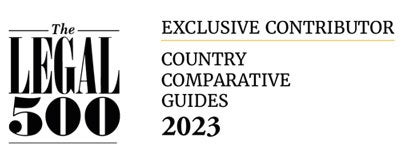In competition and consumer law, as with all areas of our practice, we seek to devise strategic and practical solutions for our clients in the most cost-effective manner possible.

Competition and consumer law has widespread application to commercial transactions and disputes and must be considered whenever commercial transactions are being planned and implemented.
The provisions of the Australian Consumer Law are the cornerstone of Australian advertising and marketing law and also have extensive application to general commercial dealings and transactions. There are similar provisions in the State Fair Trading Acts.
Holding Redlich has a national practice advising advertising agencies and advertisers on the legal issues related to proposed advertisements and advertising campaigns. We advise on these legislative provisions (and other relevant issues such as copyright, trade promotions, and talent agreements) on a daily basis. We also provide training to our clients on advertising and marketing risks, including social media risks.
The Australian Consumer Law also prohibits unfair contract terms in standard form consumer contracts entered into by corporations and contracts which are financial products or relate to the supply of financial services. Under the unfair contracts provisions any term of a standard form consumer contract which is deemed to be “unfair” may be found to be void and treated as if it never existed.
Part IV of the Competition & Consumer Act (CCA) contains comprehensive provisions concerning horizontal and vertical restraints, mergers, market power, and resale price maintenance.
In addition, the ACCC operates a system of informal merger clearance for mergers and acquisitions which may substantially lessen competition.
Holding Redlich is experienced in advising on the application of these legislative provisions to proposed mergers and acquisitions, joint ventures and contractual arrangements. We are also experienced in making applications to the ACCC for informal clearance of mergers, as well as for authorisation by the ACCC of conduct which may be anti-competitive.
The Australian Consumer Law expands the common law of unconscionable conduct by introducing, in effect, a general duty to trade fairly in relation to consumers, and also in respect of certain business transactions.
These provisions have extensive application to consumer transactions as well as to some business to business transactions including many retail leases. Holding Redlich advises clients in a number of industries, including manufacturing, retailing, and commercial property on steps to ensure compliance with these legislative provisions. We also act for clients in disputes and litigation in which unconscionable conduct is alleged.
Aspects of competition and consumer law, particularly in respect of restrictive trade practices and misleading and deceptive conduct, frequently arise in commercial disputes. Holding Redlich’s litigators regularly conduct cases in the Australian courts at all levels involving competition and consumer law and principles.
In competition and consumer law, as with all areas of our practice, we seek to devise strategic and practical solutions for our clients in the most cost-effective manner possible. In doing so we utilise our extensive knowledge of the industries in which our clients operate and our specialist understanding of the applicable law.
Franchising in Australia is regulated by the Franchising Code of Conduct, made under Part IVB of the CCA. Other provisions of the CCA also have application to franchising arrangements. Holding Redlich is experienced in acting for both franchisors and franchisees in respect of the Code and related issues.
Our experience extends to drafting, negotiating and advising upon franchise agreements in a number of sectors including in respect of motor vehicle dealerships, convenience food outlets, and retailers. We also regularly represent franchisors and franchisees in disputes and litigation. Several Holding Redlich partners are accredited mediators with the Office of the Mediation Adviser which is the mediation scheme created under the Franchising Code of Conduct
Part IIIA of the CCA concerns the granting of access to essential facilities which are also ‘monopoly’ facilities such as pipelines, railways and ports. Part XIC of the CCA concerns access to telecommunications services.
Holding Redlich is frequently asked to advise our clients in the pipeline, mining, and stevedoring industries on the application of these provisions to their businesses and commercial activities.
The ACCC has the power to grant informal clearances of mergers which may otherwise contravene the merger provisions of the CCA. Often a clearance will only be provided by the ACCC after enforceable undertakings are provided by one or more parties to the proposed transaction.
Holding Redlich is experienced in seeking informal merger clearances from the ACCC and in drafting and advising upon enforceable undertakings, especially in respect of transactions in the media, communications, manufacturing and commercial property industries.
Restraints of trade in Australia are predominately regulated by the common law which, in essence, will not allow unreasonable restraints of trade to be enforced. Holding Redlich is experienced in drafting and advising upon restraints of trade in employment arrangements and in commercial transactions, and in enforcing and challenging restraints of trade in the Australian courts at all levels.
The penalties for infringing the provisions of the CCA and the Australian Consumer Law can be very substantial and most Australian businesses ensure that they comply with the law. Many businesses implement trade practices compliance programs for their staff and Holding Redlich is familiar with the drafting and implementing of such programs in a number of industries, including in retailing, media, and commercial property.
The ACCC has extensive powers to conduct investigations and enquiries and Holding Redlich is experienced in advising and assisting clients which may be subject to such activity by the ACCC. Our experience extends to drafting detailed submissions and representing clients in meetings with the ACCC.
Regulatory compliance, including corporations law, copyright, privacy and competition law.
For an expert guide on Australian merger analysis, read our chapter published in the Mondaq Comparative Guide to Merger Control here.
You can also find out more about Australia's competition litigation laws, current issues and upcoming legal changes by reading our Q&A guide here, which we jointly published with The Legal 500.
